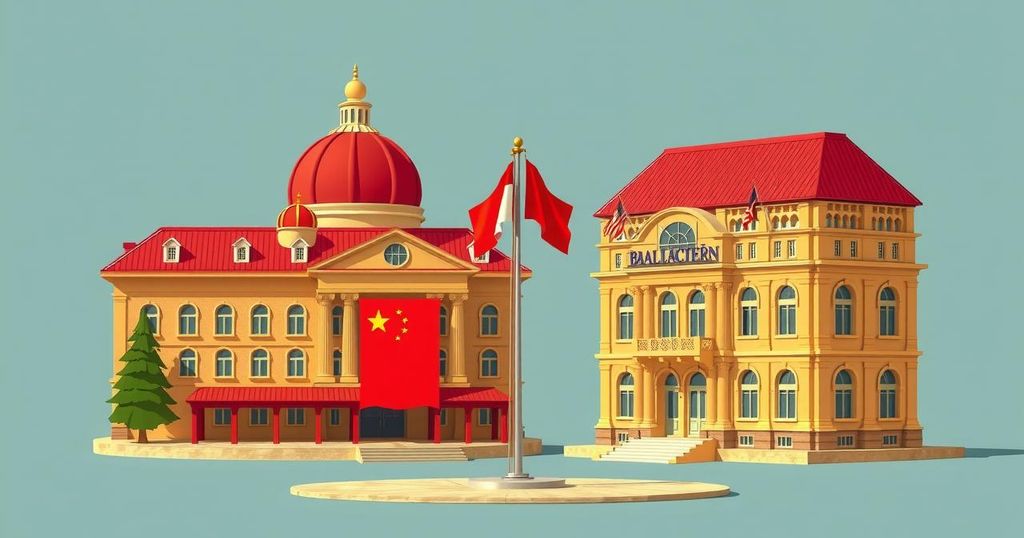Venezuela and US Reach Agreement on Repatriation Flights for Illegal Migrants
Venezuela has agreed to resume repatriation flights for migrants in the U.S. illegally, announced by President Nicolás Maduro and Jorge Rodríguez. This agreement coincides with ongoing tensions between the U.S. and Venezuela regarding oil export licenses and deportations. Flights are set to begin soon, while concerns regarding due process and human rights persist.
Venezuela has entered into a new agreement with the United States to resume repatriation flights for migrants who are in the U.S. illegally. This development was announced by high-ranking Venezuelan officials and confirmed by President Nicolás Maduro during a televised speech. The U.S. State Department has been approached for comments, although this request was made outside of regular working hours.
This agreement is significant amidst ongoing tensions between the U.S. and Venezuela, particularly following the U.S. Treasury Department’s revocation of Chevron’s export license for Venezuelan oil, which led to the suspension of deportation flights on March 8. The Trump administration previously transported over 200 alleged members of the Venezuelan Tren de Aragua gang to a prison in El Salvador under contentious circumstances, raising concerns regarding due process.
President Trump is pursuing a pledge for significant mass deportations of undocumented migrants as part of his 2024 campaign. Jorge Rodríguez, the president of Venezuela’s National Assembly, confirmed the resumption of flights, stating it aims to guarantee the safe return of Venezuelans and protect their human rights. Maduro echoed this sentiment, asserting the flights will assist families in being “rescued and released” from U.S. detention.
Maduro has also publicly criticized El Salvador’s president, Nayib Bukele, for the transfer of alleged gang members. Venezuelan officials deny that these individuals are connected to the Tren de Aragua gang. The Trump administration faces accusations of breaching a court order by U.S. District Judge James Boasberg, which prohibited the rapid deportation of Venezuelans identified as gang members.
In a social media post, Bukele referenced potentially procedural missteps regarding Boasberg’s ruling, adding an air of controversy to the situation. Rodríguez emphasized in a statement, “Migrating is not a crime, and we will not rest until all those who want to return are home.” Similarly, Maduro affirmed the resumption of flights, demanding accountability from Bukele regarding the treatment of migrants.
The initial repatriation flights from the U.S. to Venezuela are scheduled to commence imminently. Furthermore, Judge Boasberg has requested clarification from the Trump administration concerning the compliance with his deportation ruling by March 25.
The recent agreement between Venezuela and the United States to reinstate repatriation flights signifies a notable development in U.S.-Venezuela relations. Amidst ongoing tensions and the broader context of migrant deportations, this decision highlights the complexities surrounding human rights considerations and international diplomatic negotiations. With flights set to begin soon, both governments face scrutiny over their respective roles and responsibilities in ensuring the safety and wellbeing of repatriated migrants.
Original Source: www.newsweek.com




Post Comment